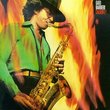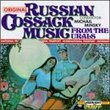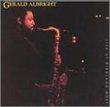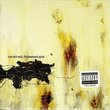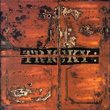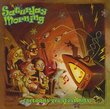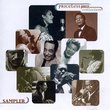| All Artists: Alice Coltrane Title: Translinear Light Members Wishing: 3 Total Copies: 0 Label: Impulse Records Original Release Date: 1/1/2004 Re-Release Date: 9/28/2004 Genres: Jazz, Special Interest, Pop Style: Avant Garde & Free Jazz Number of Discs: 1 SwapaCD Credits: 1 UPCs: 602498619292, 0602498619292 |
Search - Alice Coltrane :: Translinear Light
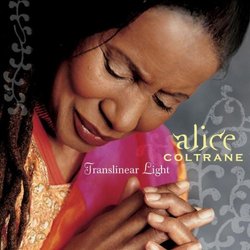 | Alice Coltrane Translinear Light Genres: Jazz, Special Interest, Pop
The Detroit-born Alice Coltrane was John Coltrane's last pianist. Now, nearly 40 years after his passing, she's released a studio recording that continues her husband's investigations of Eastern and Indian music. Drummers ... more » |
Larger Image |
CD DetailsSynopsis
Amazon.com The Detroit-born Alice Coltrane was John Coltrane's last pianist. Now, nearly 40 years after his passing, she's released a studio recording that continues her husband's investigations of Eastern and Indian music. Drummers Jack DeJohnette and Jeff "Tain" Watts and bassists Charlie Haden and James Genus provide the Traneish tempos, while Coltrane's sons Ravi (tenor, soprano) and Oran (alto) offer coloration on horns. Mrs. Coltrane's complex piano forays are complemented by her otherworldly Wurlitzer organ and synthesizer effects. Along with new compositions like the title track, she delivers new versions of her own works, such as "Blue Nile" and "Sita Ram" (from Ptah the El Dahoud and Universal Consciousness respectively), as well as her husband's classic, "Crescent." Her reverent readings of the African-American spirituals "Walk With Me" and "This Train" prove how deftly she can combine the oldest music in the world with the newest. --Eugene Holley, Jr. Similarly Requested CDs
|
CD ReviewsWorth waiting for D.D. | Somerset, KY. USA | 09/30/2004 (5 out of 5 stars) "Those of us who are deeply grateful to Ms. Coltrane for the depth and sincerity of her music will listen to her newest work with great joy. I disagree with the other reviewer, whom I suspect would always prefer the more agitated aspect of her late husband's work over the serenity that Ms. Coltrane offers here. For shame dismissing the deeply felt and soulful melody of "The Hymn" as "new age" music! There are few living composers (or performers) who merit comparison with Ms. Coltrane, and this recording is no exception. She has a reason for playing "Leo" and "Blue Nile" on this record and if you will take the time to both think and feel, you will discover the meaning. It is very beautiful and it has nothing to do with anything so trite as measuring up to the past. If you know and love her work you will be very pleased to hear these meditative and beautiful compositions. As to Alice, her love is supreme." She still has it Matt Stephens | USA | 01/24/2005 (4 out of 5 stars) "1. Sita Ram 6:08 2. Walk With Me 7:50 3. Translinear Light 9:50 4. Jagadishwar 5:47 5. This Train 6:06 6. The Hymn 3:04 7. Blue Nile 8:05 8. Crescent 6:22 9. Leo 9:40 10. Triloka 5:08 11. Satya Sai Isha 5:40 Alice Coltrane, piano, Wurlitzer organ, synthesizer Ravi Coltrane, tenor & soprano sax (3, 4, 7, 8, 9) Oran Coltrane, alto sax (6) Charlie Haden, bass (3, 5, 8, 10) James Genus, bass (2, 4, 7) Jack DeJohnette, drums (1, 3, 5, 8, 9) Jeff "Tain" Watts, drums (2, 4, 7) As you've probably heard, this is Alice's first album in 26 years. It has been called "comeback album of the year" by JazzTimes magazine, and is being hailed by many jazz critics as one of her best works. But how many comeback albums really come out each year? You can't measure a record by how long it's been since the artist last put out a release. However, that being said, Translinear Light is still a very good album. Alice plays some great renditions of old songs that her and her late husband used to play, including Crescent and Leo. She also plays a couple of songs from her classic early '70s albums. Most of the new material here is good, too. One of my favorite songs on the album is the title track, which starts as a ballad before moving on to an edgy, funky, latin-type thing. The old spirituals she performs ("Walk With Me" and "This Train") are wonderful. They fit right into the type of thing she does. But I didn't really care for the tracks on which she plays synthesizer, "Jagadiswar" and "The Hymn." I know that Alice has never been a new age artist, but "Jagadishwar" sure sounds like new age to me. I'm not saying that it's not good; I just didn't expect to hear it when I bought the album. But that's why they put a "skip" button on stereos. "The Hymn" is a duet with her son Oran on alto sax. Other than those two songs (which are short), Translinear Light is a good record. The last track, "Satya Sai Isha," is amazing. It is a chant led by the singers of Alice's monastery, accompanied only by Alice on Wurlitzer organ. The thing that disappointed me the most about this record was the production. It was treated more like a smooth jazz album than an Alice Coltrane album. Everything sounds too glossed over and perfect. A lot of people will probably like that, but most of what I listen to is from the 60s and 70s, which was before the technology became so advanced to make a more "perfect" recording. To me it was sort of a shock because I barely ever listen to newer recordings. But to the individual listener, it's just a matter of what type of stuff one generally buys. Overall, Translinear Light is a respectable album by one of the greatest and most unique musicians ever. Alice has a voice that is all her own. If you are a true fan of her work, you won't be disappointed by the music." Alas, some of the fire is gone Troy Collins | Lancaster, PA United States | 09/28/2004 (3 out of 5 stars) ""Translinear Light" is Alice Coltrane's first commercial album since her retirement in the mid 1970's when she left the music world behind to join an ashram. In addition to being John Coltrane's wife, Alice was the last pianist in his quartet before his death in 1967. She went on to make quite a name for herself in the free jazz scene of the late 1960's and early 1970's. Specializing in the wurlitzer organ, Alice had developed an utterly singular style on this rarely played instrument. An accomplished pianist and harpist, she plays a mixture of instruments and styles on this comeback album, but the fire of the 1960's have since subsided and so it seems, has some of the passion.
Overall a fairly straight ahead and serene album, "Translinear Light" does have its share of conceptual highs and lows. While accompanied by her son saxophonist Ravi Coltrane on half of the disc, the remainder is primarily trio pieces, featuring either piano or wurlitzer. Interestingly enough all the finest cuts on the album feature her playing the organ. It is her improvising on this obscure instrument where she is most vivacious and reminiscent of her salad days. The majority of the album however is mid-tempo piano based ballads, with two out of place synthesizer tunes thrown in. These two tunes sonically approximate New Age spirituality at it's most bankrupt. The high point of the album is a cover of John Coltrane's "Leo." A frenetic head melody originally played as a duet by John Coltrane and his last drummer, Rashied Ali, this version features Alice on wurlitzer, Ravi on tenor and Jack DeJohnette on drums. Where "Leo" was once a firey and passionate excursion into the primal frenzy of high spirited improvisation, here it has become a formalized exercise in metered rhythms and constrained playing. Although enjoyable, it lacks the intensity of it's original performance and exemplifies the difference between Alice's playing then and now. An uneven release, "Translinear Light" is an acceptable listen overall, and a mature piece of work thirty years on from her classic recordings, but for those yearning for the passionate playing of her 1970's releases, this may not hold the same cache as those iconic statements." |

 Track Listings (11) - Disc #1
Track Listings (11) - Disc #1